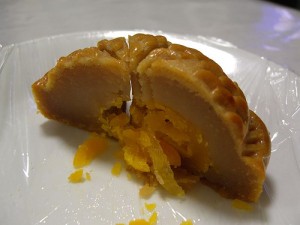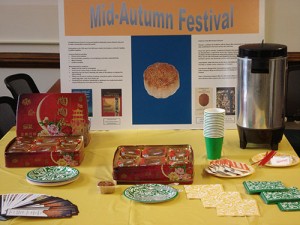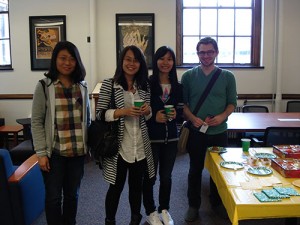Laila Hussein
Laila Hussein comes to the University of Illinois Library after working as a cataloger and Reference Librarian at New York University. Prior to that, she was a human rights activist in Egypt , and worked in the United States with Landmine Survivor Networks, International Torture Survivors, and did outreach to the HIV positive community in New York. She holds two Masters degrees, the first from New York University in Near Eastern Studies, and the second is from Long Island University in Library Science. Laila brings to the International and Area Studies library lots of great experience in both libraries and international outreach!
As the Middle Eastern and North African Studies Librarian, Laila is looking forward to working with Illinois’ community of faculty, staff, students and scholars to help build the Library’s Middle Eastern collection. She also hopes to help students with their research needs by working with instructors to develop tailored library guides for classes. Her plan also included to work with other universities in the United States and around the globes to develop relationships that will benefit the scholars in the field of the Middle East and North Africa Studies, Laila’s dream project is to develop the Middle Eastern and North Africa minorities collections and have Illinois University become the main resource for these types of collections to both international and local scholars. She has also recently developed a new LibGuide on the Arab Spring, concurrent with her display in the Marshall Gallery (the open area on the first floor of the Library) on this important topic. Be sure to check them both out!
Laila is a native Arabic speaker, and she is also proficient in Persian, Hebrew, Old Ottoman, and German. In her free time, Laila enjoys exercising and listening to audio books.
Her office hours this semester are Tuesdays 10:00am – 12:00pm and Fridays 11:30am – 1:30pm, and you may also reach her by email at lhoussei AT illinois.edu.
Antonio Sotomayor
Antonio Sotomayor is originally from Puerto Rico, and completed his undergraduate education at the University of Puerto Rico at Mayagüez before coming to the United States for graduate school. He holds a Masters’ degree in Counseling from Indiana University, another Masters’ degree in Latin America and Caribbean Studies from the University of Illinois, and a Doctorate in history from the University of Chicago. His research interests lie in Latin American studies and Brazilian cultural and political history and the history of sport, which brings him here to work at the International and Area Studies Library.
As a new librarian, Antonio has been evaluating the breadth of our library’s existing Latin American collection, which is among the top five in the United States. Our collection’s specialties are Andes, Brazil, Argentina, Colombia, Mexico, and Caribbean Area materials. Antonio believes his primary goal as the Latin American Librarian is to promote and continue developing our Latin American collection. He plans to improve the collection’s online presence by redesigning the Latin American and Caribbean website, and by digitizing some materials for online access. He is also reorganizing our current journals and magazines for better access and easy browsing in the IAS reference room.
Antonio seeks to connect with to departments that have Latin America related research around the University to promote our collection and services. Right now he is working closely with the Center of Latin America & Caribbean Studies, and the Lemann Institute for Braziian Studies. Antonio is also the co-planner on an exhibit in the library for this coming fall which will promote the 50th anniversary of the Center for Latin America and Caribbean Studies.
Antonio is a native Spanish speaker, and is proficient in Portuguese. In his free time, he enjoys genealogy, watching football and other sports, and both playing and watching basketball. He is also a photographer, and his photographs have been presented in different exhibits.
His office hours this semester are Monday and Tuesdays 9-11am, and you can visit his library web page.





